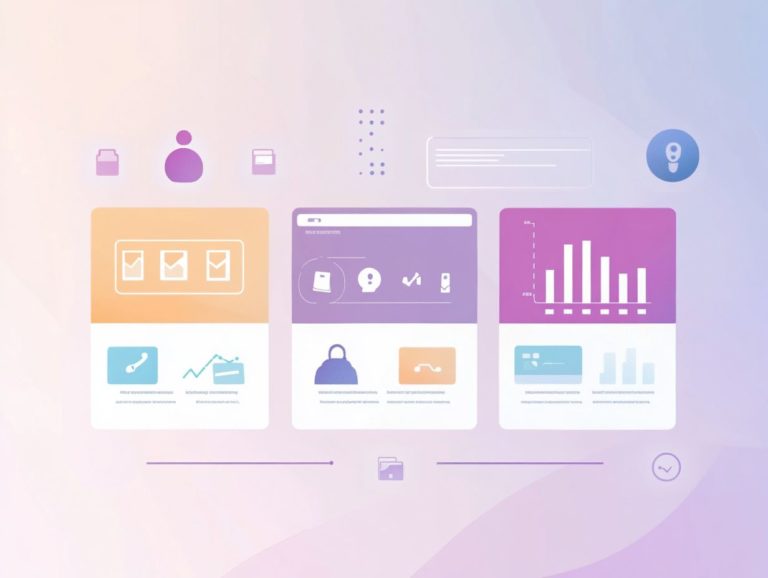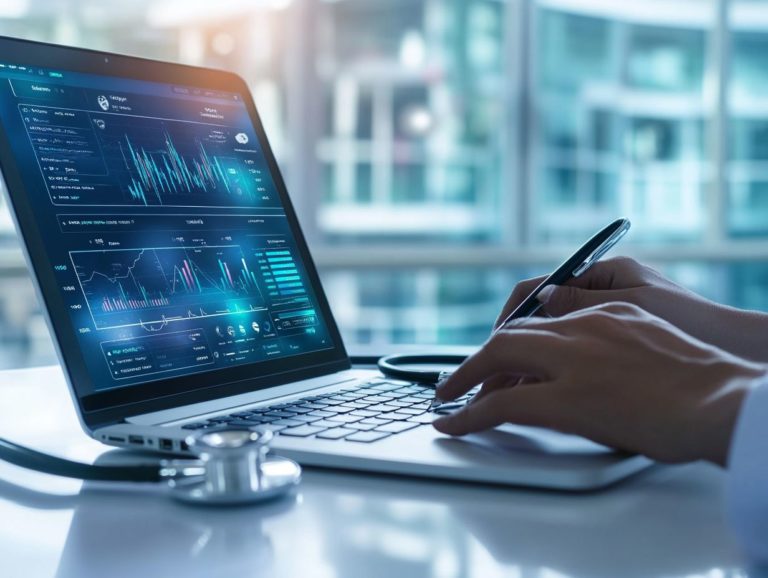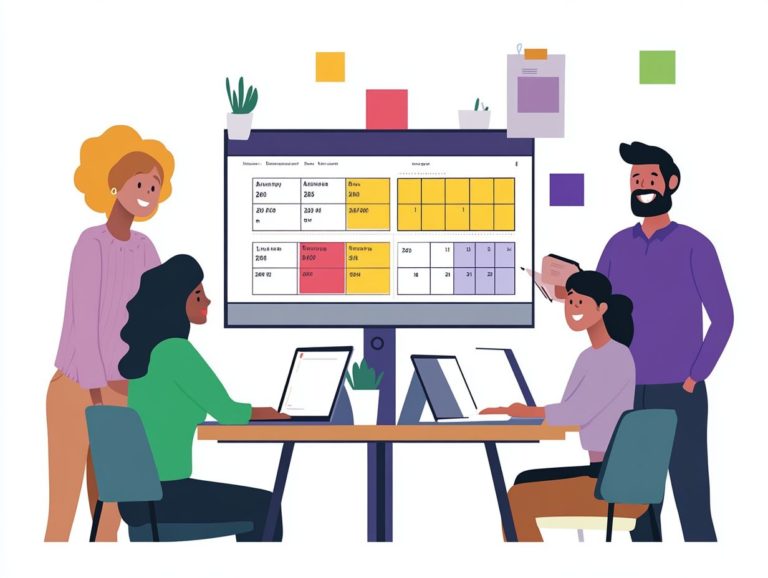How Secure is CRM Software?
In today s digital landscape, ensuring the security of CRM software is paramount. With sensitive customer data hanging in the balance, businesses like yours must prioritize protecting this invaluable information against myriad security risks.
This article delves into the definition and purpose of CRM security, highlighting common vulnerabilities and threats you should be aware of. It also outlines best practices for establishing a robust security posture.
By grasping the significance of secure CRM systems, your organization can bolster customer trust and effectively safeguard valuable data.
Contents
- Key Takeaways:
- Importance of Security in CRM Software
- Potential Security Risks in CRM Software
- Ensure Your CRM Software is Secure Today!
- Benefits of Using Secure CRM Software
- Frequently Asked Questions
- How Secure is CRM Software? Find out why it s crucial for your business!
- What security features are typically included in CRM software?
- Is it safe to store customer data in CRM software?
- How can I ensure the security of my CRM software?
- Can CRM software be hacked?
- Are there any risks associated with using CRM software?
Key Takeaways:
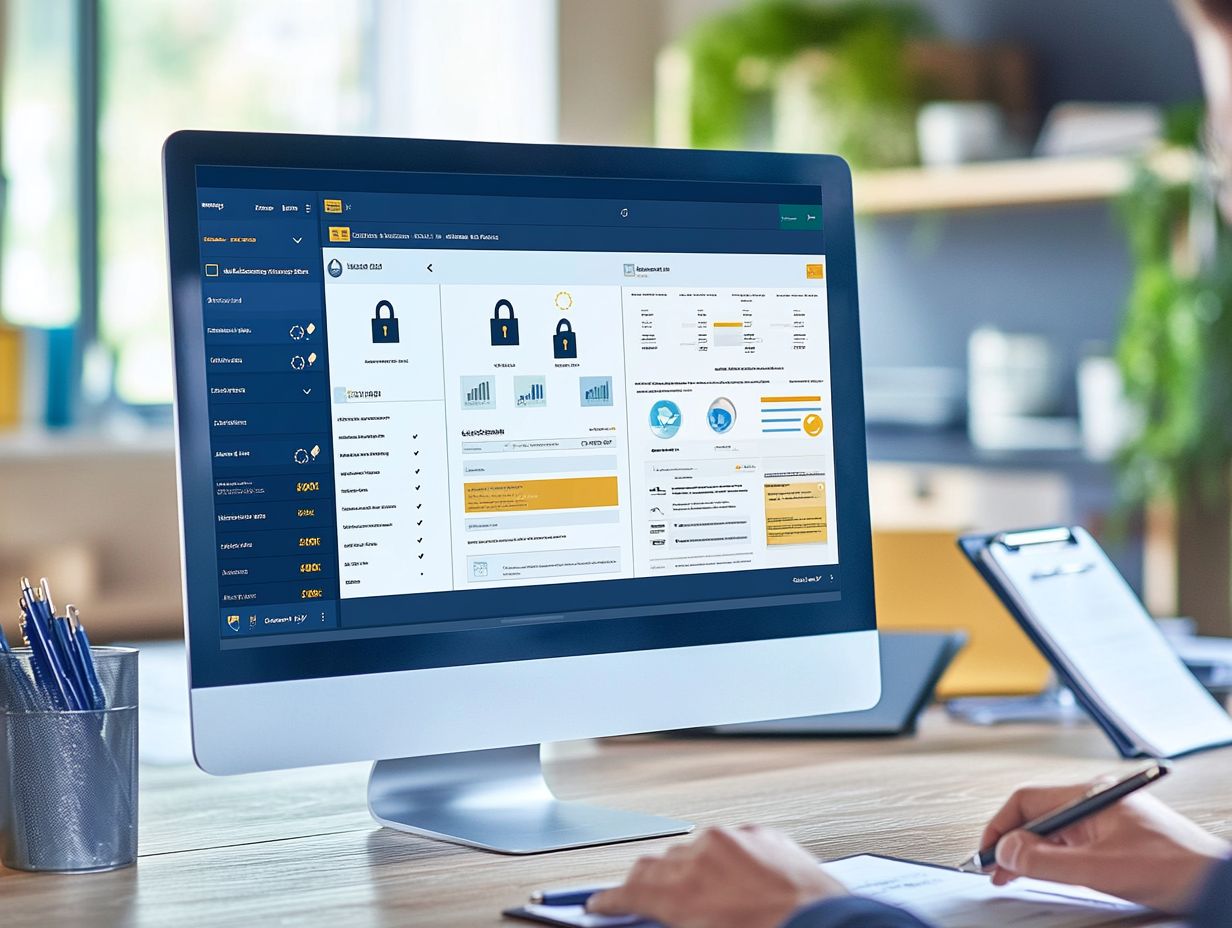
- Secure your customers data with top-notch CRM software!
- Stay ahead of potential threats act now to protect your valuable information!
- Implement best practices and strategies to ensure the security of your CRM software.
Importance of Security in CRM Software
The significance of security in CRM software is crucial as it safeguards sensitive customer data and nurtures trust in business relationships, especially in a digital realm filled with cyber threats.
As data breaches and identity theft continue to escalate, prioritize data security and adopt rigorous security protocols to comply with regulations like GDPR and CCPA.
These measures protect customer information and insulate your business from reputational harm and legal repercussions. Thus, implementing robust cybersecurity strategies is critical for any modern CRM system.
Protecting Sensitive Customer Data
Protecting sensitive customer data is essential in CRM software security. You must ensure personal information is safeguarded against unauthorized access and potential cyber threats.
Implementing strong data encryption methods is vital; these techniques scramble information, rendering it unreadable to anyone lacking the proper decryption key.
Establishing access levels for different employees enables you to restrict access based on individual roles within your organization, further minimizing the risk of data leaks.
Secure passwords are crucial in this protective framework; they should be complex and regularly updated to deter unauthorized access.
Continuous employee training on data security is essential. Regular assessments of security protocols uphold high standards, ensuring every team member remains vigilant and informed about the latest threats.
Potential Security Risks in CRM Software
Potential security risks in CRM software present significant threats to your organization. These vulnerabilities can be exploited by cybercriminals, leading to targeted attacks such as malware and phishing scams.
In a world where cyber threats are everywhere, CRM systems often become prime targets for hackers aiming to compromise sensitive customer information. Stay alert! Implement robust security measures to safeguard your data.
Common Vulnerabilities and Threats
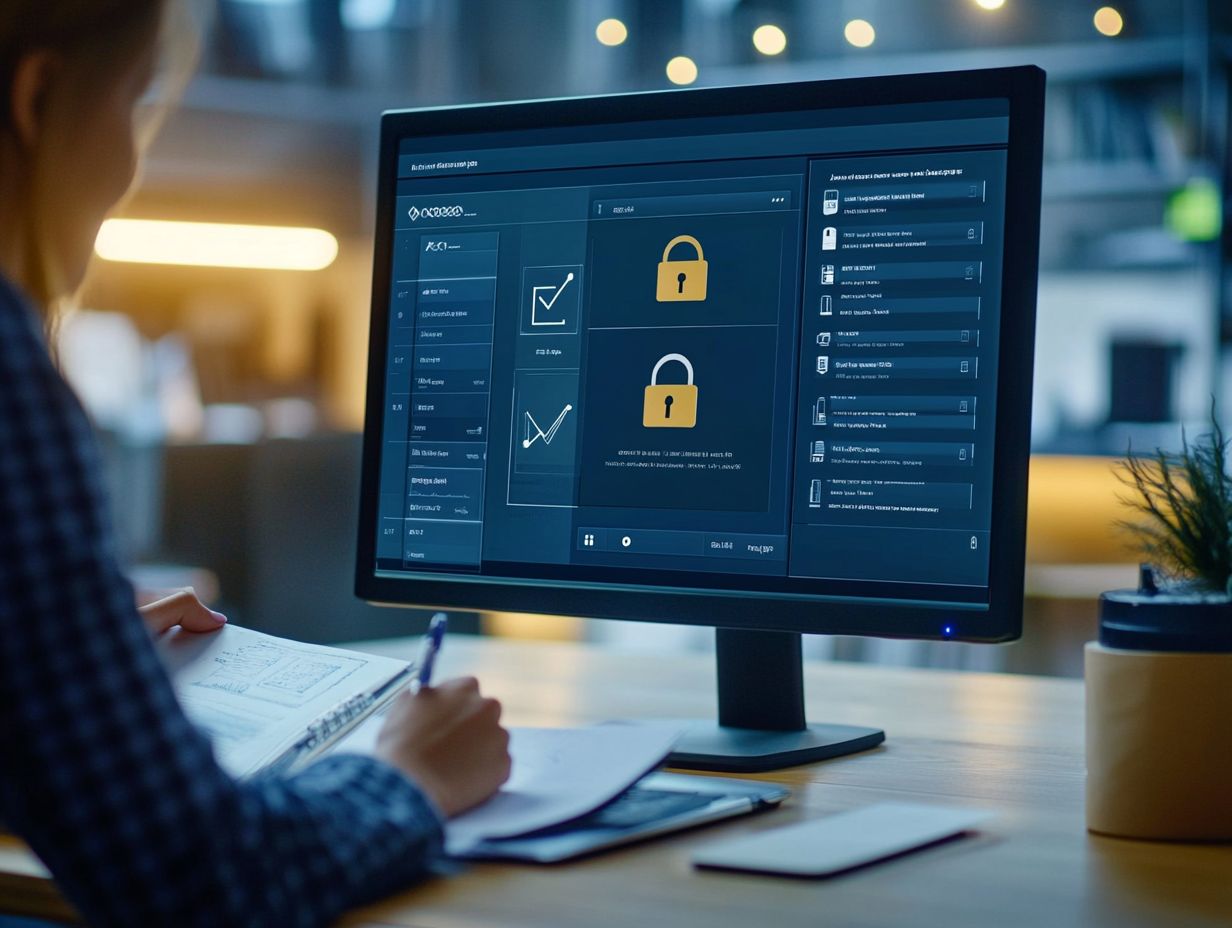
Common vulnerabilities and threats in CRM software can lead to data breaches. It s essential to adopt robust incident response strategies and conduct regular security assessments to identify and neutralize potential risks.
These vulnerabilities often arise from inadequate user authentication protocols, insecure APIs, and outdated software components, all of which cybercriminals can exploit to gain unauthorized access to sensitive customer information.
Once inside, attackers may deploy malware or siphon off valuable data, resulting in severe reputational damage and financial loss.
That s why it s crucial to implement comprehensive incident response protocols that outline immediate actions during a breach and establish preventative measures to strengthen system integrity.
Continuous security assessments help you detect vulnerabilities early, fostering an adaptable security posture capable of thwarting evolving cyber threats.
Ensure Your CRM Software is Secure Today!
To secure your CRM software, adopt best practices in data management and access controls. Train your team proactively to reduce risks.
Conduct regular security audits to identify weaknesses in your defenses. Provide thorough employee training and manage passwords effectively.
Use secure protocols like HTTPS for data transfer. Regular backups ensure you can recover information in case of a breach.
Train your employees to recognize cyber threats. This training is essential to reduce vulnerabilities in your systems.
Regularly evaluate your security measures. This helps you adapt to new threats and keep your strategies effective.
Benefits of Using Secure CRM Software
The advantages of employing secure CRM software go beyond meeting regulatory requirements. It cultivates greater customer trust and bolsters data protection both essential elements for thriving in today s digital landscape.
A secure CRM system reduces the risks associated with data breaches and cyber threats. It showcases your commitment to protecting customer information, significantly elevating your company s reputation as a leader in privacy and security.
Improved Customer Trust and Data Protection
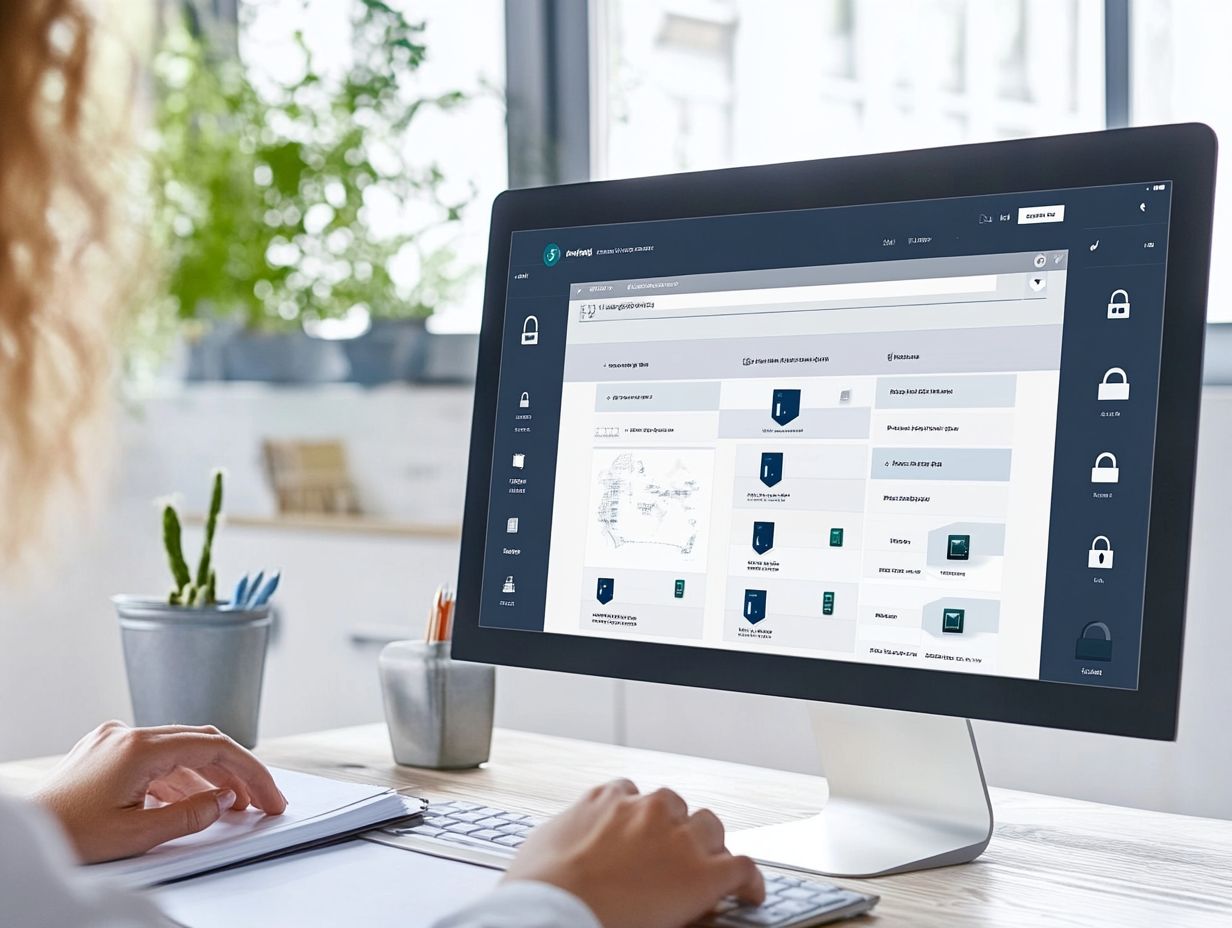
Improved customer trust and robust data protection mechanisms in CRM software significantly enhance your business credibility and pave the way for long-term success.
When customers know their personal information is secure and handled in accordance with strict regulations like GDPR and CCPA, they are more inclined to engage with your brand and cultivate loyalty.
This trust streamlines customer interactions and presents your company favorably in a competitive marketplace.
Effective cybersecurity practices protect against potential breaches that threaten sensitive data, ultimately reinforcing your customers’ trust in your organization.
A reliable CRM system focused on data protection becomes foundational in building enduring relationships, boosting both customer satisfaction and brand reliability.
Frequently Asked Questions
How Secure is CRM Software? Find out why it s crucial for your business!
CRM (Customer Relationship Management) software is designed with security in mind and is generally considered highly secure. However, it’s crucial to understand how to maintain data privacy in CRM software to effectively protect sensitive customer data with the right precautions and best practices.
What security features are typically included in CRM software?
Most CRM software includes features such as role-based access control (a system that limits who can see or use certain information), data encryption, audit trails, and firewalls. These protect against unauthorized access, data breaches, and other security threats.
Is it safe to store customer data in CRM software?
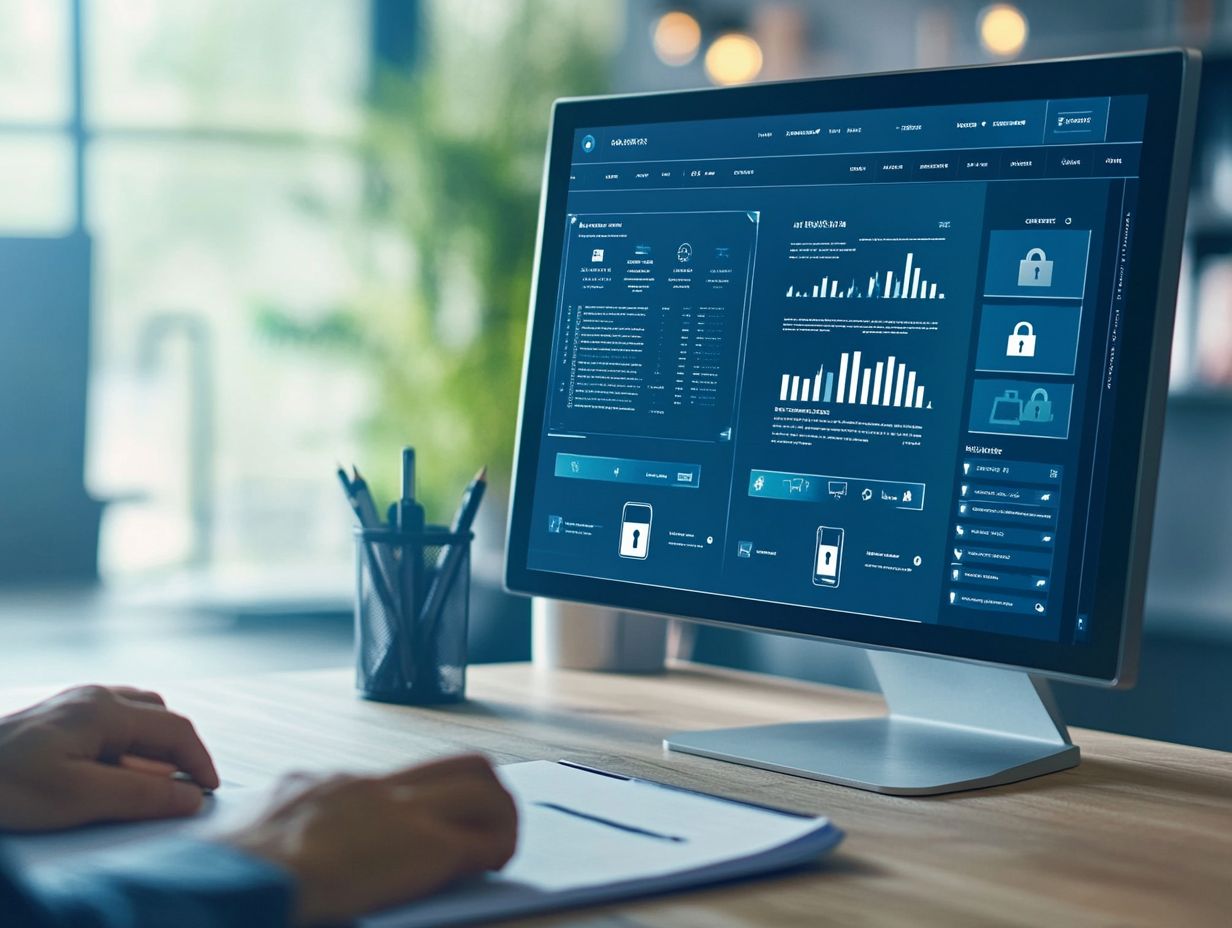
Yes, it is generally safe to store customer data in CRM software as long as proper security measures are in place. This includes regular backups, strong passwords, and restricted access to sensitive information.
How can I ensure the security of my CRM software?
To ensure the security of your CRM software, regularly update it, use secure passwords, and limit access to only those who need it. Conduct regular security audits and train employees on best practices for handling customer data.
Can CRM software be hacked?
Any software can potentially be hacked. However, CRM software is built with strong security features, highlighting the importance of security in CRM implementation to prevent this.
To minimize hacking risks, follow security best practices and regularly update your software.
Are there any risks associated with using CRM software?
Like any software, CRM systems can face data breaches or security threats. You can greatly reduce these risks by using safe practices and choosing a reputable CRM provider.
Make sure your provider has a track record of strong security measures.



